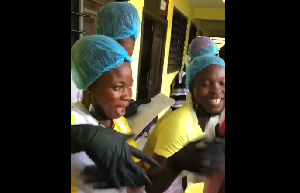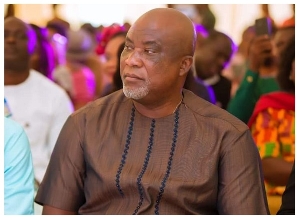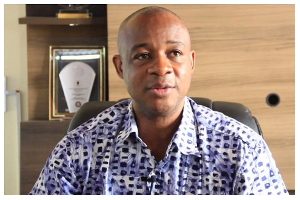Watch as a 16-year-old renal patient narrates her ordeal of having a malfunctioning kidney for 3 years
The recent hike in the cost of dialysis treatment at the nation's premier public health facility, the Korle Bu Teaching Hospital, could not have come at a worse time for Ghanaians grappling with malfunctioning kidneys.
Many renal patients, due to the worsening economic conditions in the country, could not afford the required three dialysis sessions a week at the previous GH¢360 cost per session. Most could afford only one or two sessions per week to have some energy to go about their daily activities without suffering a medical crisis that could cost them their lives.
GhanaWeb's visit to the Renal Unit of the Korle-Bu Teaching Hospital, which provides dialysis services to renal patients from every part of the country, showed that many patients had to return home because they could not afford the new GH¢491 cost per session, which started on Sunday, May 13, 2024.
During the visit, which was to assess the impact of the increase in the cost of dialysis treatment on the lives of the patients and their families, the team encountered a 16-year-old girl, Rosemary Boateng, who has been visiting the Renal Unit for the past three years after her kidneys started malfunctioning.
Rosemary Boateng, a first-year Senior High School student at the West African Senior High School, narrated the toll her treatment has been taking on her family and her education.
She said that even when the cost of treatment was GH¢360, her parents sometimes didn't get the money for a session of treatment in a week.
"It is very hard for us; having two sessions was very difficult for us before the increase. So, I have to manage myself, take good care of myself… because there is no money for me to come for the treatment twice, so I come once a week," she told GhanaWeb's Ishmael Batoma.
She also said that because of her illness, she misses school at least once every week to undergo her treatment. When she is not able to get treatment in a week, she has to miss school for several days because she doesn't have the energy to move.
"When I don't go for dialysis, and I become sick, I don't have the strength to go to school. I stay home unless I get the money for dialysis.
"I even see it better for me to have the money and come for dialysis without going to school for one day than to remain home for three days if I don't get the treatment," she said.
Rosemary Boateng went on to make a passionate appeal for the government to add dialysis treatment to the country's National Health Insurance Scheme (NHIS).
"We are pleading with the government to put dialysis on the health insurance for us. So that if you have your health insurance, you can go for dialysis even three times a week because that is the required number of sessions we need."
Watch the interview below:
BAI/NOQ
Watch the latest episode of Everyday People below:
Ghana’s leading digital news platform, GhanaWeb, in conjunction with the Korle-Bu Teaching Hospital, is embarking on an aggressive campaign which is geared towards ensuring that parliament passes comprehensive legislation to guide organ harvesting, organ donation, and organ transplantation in the country.
- 2024 Menstrual Hygiene Day: Ga Mantse, Adwinsa Publication and Father Campbell SVD Foundation educate students
- Menstrual hygiene book ‘No More Suffering in Silence’ launched on eCampus app
- Korle-Bu Teaching Hospital launches centenary paraphernalia
- Okoe Boye presents ambulance to UGMC
- Okoe Boye donates 20-seater bus to Lekma Hospital
- Read all related articles












